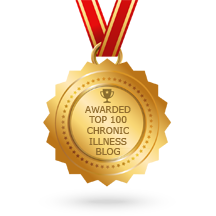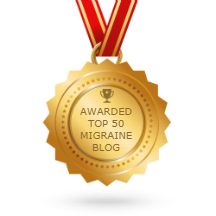Shades for Migraine Awareness, Headache Disparities and Expanding Access to Life-Changing Medications
Today is Shades for Migraine Day! It’s part of Migraine and Headache Awareness Month (#MHAM2020) to raise awareness about living with migraine. Post your photo on social media with the hashtag #shadesformigraune and challenge 3 friends!
I wanted to talk about some facts about migraine and headache disparities today. So, here are some quick facts:
- Migraine is a serious neurological disease. It’s not “just a headache.”
- Migraine is the 3rd most prevalent illness in the world and the 6th most disabling.
- There is a serious lack of availability in specialists for headache disorders, with only about 500 certified headache specialists in the U.S and 40 million sufferers. The U.S. has less than 1/6th of the number of doctors that we need, which is why organizations like the Headache and Migraine Policy Forum and Alliance for Headache Disorders Advocacy and other organizations are advocating for increased federal funding for headache fellowships to end the shortage and increase access to care.
- Racial disparities in headache treatment are widespread. In one study, 46% of African Americans were less likely than 72% of Caucasian Americans to receive treatment for migraine disorder in their primary health clinic, and less likely to be prescribed acute medications. I highly recommend reading Migraine Diva's recent post on disparities in headache diseases. We can and must do more to make sure that we address implicit bias in health care and in our daily lives.
- While there are has been an increase in new migraine medications like CGRPs, access to these medications is far from equitable or accessible. Many insurers force patients to "fail" two treatments in one category (either preventative or acute. Usually, it can take months for patients to adequately "fail" the treatments, losing time, quality of life, and money, before new treatments will be covered. Sign this petition to urge insurers and government agencies that provide healthcare insurance to provide access to these drugs.
- Educate those around you: Migraine is an invisible disease. Many people do not know how living with migraine affects your life. Take MHAM as a reason to talk with your friends, families, and coworkers about what migraine is and begin to break down stereotypes. Another great way to start the conversation is by watching the Out of My Head documentary, which is now streaming on Amazon. If you want to talk about how to have these conversations, feel free to send me a DM on Instagram or Facebook.
I've had some time in the last couple of months to reflect on my experience with migraine. I've been living with migraines for 8 years at this point. I've thought about how much that my life has changed, but also about what I've been able to accomplish. By writing about my experiences, I've learned about how to talk to doctors, friends, bosses, and family about my disease and break down stereotypes in my own circles. I've become a patient advocate for migraine and headache disorders, bringing my story to Capitol Hill to discuss with lawmakers how they can better support the 40 million people in the U.S. that live with headache disorders. I've also been working on the policy side as well. COVID-19 has changed the way healthcare is delivered. Migraine is one of the disease that would greatly benefit from increased telehealth capacity because of the lack of qualified specialists. Telehealth allows patients to see specialists and neurologists from the comfort of their own home, which is extremely important given the challenges that people with migraine face with travel. It is exciting to be working on the forefront of these issues as I am working to blend my advocacy with policy.
Migraine and Headache Awareness Month is always one of my favorite months. It is amazing how much that one conversation can change things. We all start somewhere. Advocacy is still advocacy, no matter how many people you reach.





11 comments: